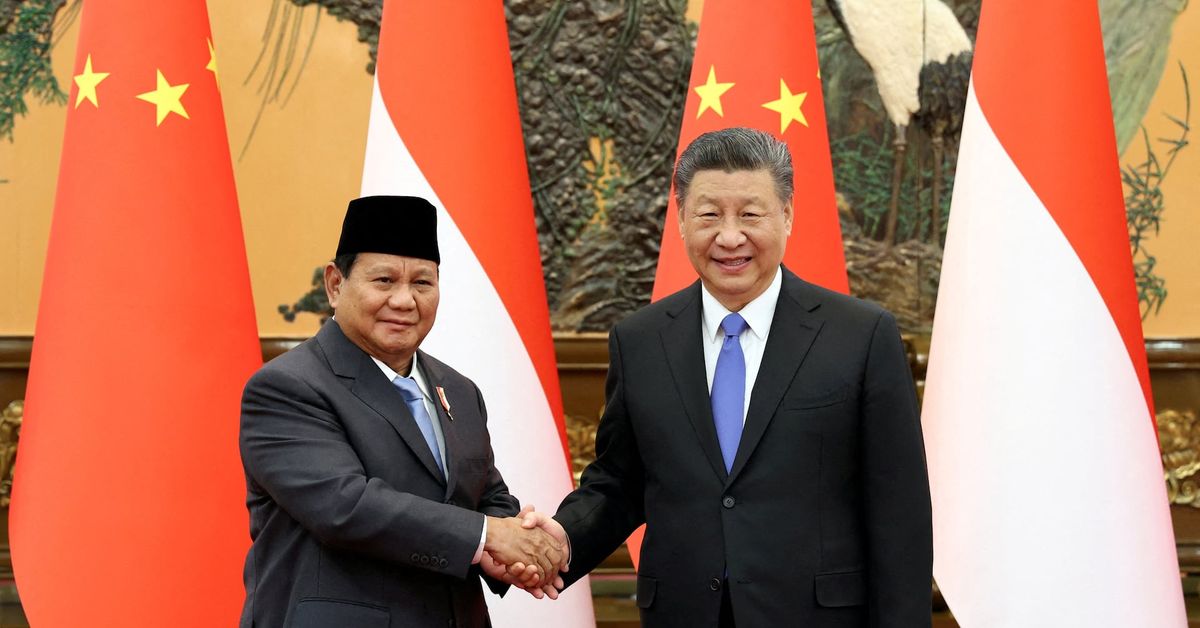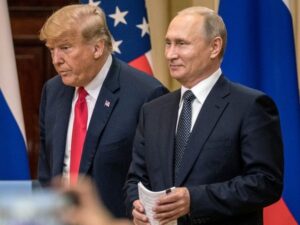
Soon after Indonesia’s incoming leader Prabowo Subianto won the February presidential election, the Chinese embassy in Jakarta sent him a cat tree and a stuffed toy for his beloved pet Bobby, according to the cat’s official Instagram page.
It was part of a concerted charm offensive by China, the second-largest investor in Indonesia behind neighbour Singapore.
Days after Prabowo claimed victory in the election, China’s ambassador to Indonesia came to his home to congratulate him. And this week, Prabowo travelled to Beijing at the invitation of President Xi Jinping.
Analysts say China is courting president-elect and current defence minister Prabowo to ensure the continuation of his predecessor President Joko “Jokowi” Widodo’s policies, which include a strong economic relationship with Beijing and very few irritants.
Analysts however say although Prabowo is expected to continue Jokowi’s policies, he might be more unpredictable and explosive if Indonesia is dragged into geopolitical tensions, such as the simmering conflict in the South China Sea.
China lays claim to almost the entire waterway, a conduit for more than $3 trillion in annual maritime commerce, but its claims overlap those of Brunei, Indonesia, Malaysia, the Philippines and Vietnam, all members of the Association of Southeast Asian Nations (ASEAN).
China’s relations with the Philippines have nosedived in recent months because of the South China Sea claims and Manila’s growing ties with United States.
Prabowo is expected to want to burnish his reputation as a nationalist and take a tougher stance on the South China Sea, said Yohanes Sulaiman, an international relations professor at Jenderal Achmad Yani University.
“He has always carried with him the concept of the nationalist,” he said. “That’s his trademark.”
Owing to Prabowo’s stint as defence minister and a former military commander, foreign policy expert Dewi Fortuna Anwar said China may have concerns that he will prioritise security over the economy, which will be at variance with Jokowi’s presidency. “He will be more unpredictable (than Jokowi),” she said.
The invitation to visit to a president-elect is unusual for China and it shows a clear attempt at wooing Southeast Asia’s largest economy, said Dewi, who has been an adviser to former vice presidents.
“China wants to ensure Prabowo continues Jokowi’s policy,” Dewi said. “The United States and China are jostling to make sure that Indonesia looks to them.”
On Monday, Prabowo, whose ministry said he went to Beijing as a defence minister and not as president-elect, said he supports closer Indonesia-China relations and “wishes to continue President Jokowi’s policy of friendship with China.”
After meeting Xi on Monday, Prabowo said he viewed China as “one of the key partners in ensuring regional peace and stability,” adding that he sought to boost defence cooperation with China.
Prabowo pledged to continue Jokowi’s economic and foreign policies during his election campaign. Jokowi’s implicit support contributed to Prabowo’s victory, with his son as the president-elect’s running mate.
Throughout his presidency, Jokowi actively sought Chinese investment for Indonesia’s nascent electric vehicle industry. Indonesia has the world’s largest nickel reserves, an important material for EV batteries.
Chinese companies, including the world’s biggest EV battery maker Contemporary Amperex Technology Co (300750.SZ), opens new tab (CATL) and steel maker Tsingshan Group, have built plants and smelters in Indonesia, mostly on the country’s Sulawesi island.
Jokowi, who went to China for his first visit in 2014 after he was first inaugurated as president, also secured loans from the world’s second-largest economy to fund its high-speed railway worth $7.3 billion.
Indonesia has also courted U.S. investment, trying to lure carmaker Tesla (TSLA.O), opens new tab into investing and has secured a deal with Ford (F.N), opens new tab to invest in a nickel processing plant on Sulawesi.
But China’s investment eclipses that of the U.S. China invested $7.4 billion in Indonesia for the whole year of 2023, compared to $3.3 billion from the United States, data from Indonesia’s investment ministry shows.
Xi said on Monday that China “views its relations with Indonesia from a strategic and long-term perspective, and is willing to deepen all-round strategic cooperation with Indonesia,” citing the railway as an example.
Prabowo said at a forum last November that Indonesia was committed to its policy of non-alignment and would keep good ties with both China and the United States.
“We want to maintain our policy of good neighbourliness in our region and also in the world,” he said, adding that he “admires” Chi
na’s education and fight against corruption.






